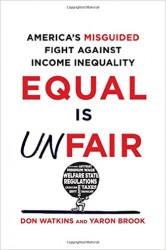https://medium.com/@lucaberta/solar-impulse-advancement-or-else-dd7d14c52707#.yt5t4zsfb
Month: April 2016
The issue with unreliable energy sources
“Today in Energy” is a daily newsletter published by the U.S. Energy Information Administration.
Today’s newsletter has a quite clear title, which proves once again why I like to call wind and solar energy “unreliables”. That is, sources of energy which we cannot rely upon.
The title of the newsletter is quite self-explanatory:
“Wind generation growth slowed in 2015 as wind speeds declined in key regions”
A key paragraph in the article is this:
U.S. wind generation grew by 5.1% in 2015, the smallest annual increase since at least 1999, as weather patterns in the Western half of the United States lowered wind speeds and dampened wind generation during the first half of the year. The same weather patterns resulted in stronger winds in the central part of the country, where wind generation growth in 2015 was most pronounced.
This is what happens when relying on unreliable energy sources. You throw a lot of money at them, and you can never be sure of the results.
How much money is being spent on unreliable wind energy?
Yaron Brook @yaronbrook on PBS for “Equal is Unfair”
Yaron Brook was interviewed by PBS during his book launch tour for “Equal Is Unfair: America’s Misguided Fight Against Income Inequality”, which he coauthored with Don Watkins.
The book is very much worth reading, and will guide you thru the many fallacies of the different ways the left is using to attack capitalism and the free-market, attacks to which the right seems to be completely unable to respond to. Luckily Brook and Watkins give us all the required information to counter such attacks in the book.
This video interview is very clear and very much worth watching. 8’25” well spent, if you care about spreading the truth about why income inequality is NOT the issue that the left wants you to believe it is.
Robert Bryce @pwrhungry on the SunEdison’s Subsidy-Fueled Collapse
Robert Bryce is the author of some very good books on the topic of energy, including “Power Hungry”, which I reviewed recently on my blog, and the newest one “Smaller Faster Lighter Denser Cheaper: How Innovation Keeps Proving the Catastrophists Wrong” which I am currently reading.
Bryce has recently written a very detailed piece on National Review about the looming failure of SunEdison, a company that touts itself as the “largest global renewable energy development company.”
Some points are raised by Robert Bryce in his piece, and they are worth mentioning:
Even $1.5 billion in subsidies and loan guarantees can’t save a “clean” energy company from bankruptcy. […] But the remarkable thing about SunEdison is how much cash it was able to get from state and federal taxpayers during its low-emissions trip to bankruptcy court.
moreover:
Alas, SunEdison isn’t the only example of how federal taxpayers have helped prop up poor management in the “clean energy” sector. Earlier this week, the Spanish energy company Abengoa SA filed for Chapter 15 protection in U.S. bankruptcy court in Wilmington, Del., claiming some $16.5 billion in debt. Like SunEdison, Abengoa has been a leading promoter of solar projects in the U.S. According to Subsidy Tracker, Abengoa has received $986 million in federal grants and tax credits, as well as another $7.8 million in state and local subsidies. The bulk of that sum — about $841 million — was for solar projects.
To summarize:
In all, Abengoa got some $2.6 billion in federal loans and loan guarantees as well as $986 million in federal grants and tax credits. Thus, between the collapse of Abengoa and the looming bankruptcy of SunEdison, federal taxpayers have shelled out some $5 billion in direct grants and loan guarantees to lousy management teams in subsidy-dependent businesses that would never have grown to their current size had they not been able to binge on taxpayer cash.
5 billion dollars in direct grants and loan guarantees to companies which went bankrupt very quickly, regardless of how much taxpayer’s money has been shelled by the government. 5 billion dollars.
In closing:
Critics of the federal government’s support for “clean energy” companies have repeatedly claimed that the government shouldn’t be “picking winners.” To that, I can only say that the evidence — from the failed solar company Solyndra and failed battery companies like Ener1 and A123 to SunEdison and Abengoa — proves that the government hasn’t in fact, been picking winners. Quite the opposite.
It is quite obvious to me that we are once again witnessing how a government tries hard to force the free market to take a specific route, but sooner or later it is bound to fail. Governments should never pick sides, but if they do, it would be better if they would pick winners and not losers.
For those who have been reading Robert Bryce’s books, this should not come as a surprise. After all, in “Smaller Faster Lighter Denser Cheaper: How Innovation Keeps Proving the Catastrophists Wrong” Bryce is pretty clear on what characteristics are needed for a technology to displace a previous technology: solar power is NOT Smaller nor Faster nor Lighter, and most definitely neither Denser nor, quite obviously, Cheaper.
Solar power is still a very interesting way to generate electricity, but governments should let the market decide in what form solar will be used. And no government is doing this today, unfortunately. This is sadly why we will still see more failures like the ones of SunEdison and Abengoa in the future.
@yaronbrook and the best minimum wage explanation
I find myself mentioning Yaron Brook again on my blog again, this time to link a YouTube video which, though it’s precisely 4 years old, is still very much right and applicable today.
The topic being discussed is the minimum wage, which has once again become a topic mentioned a lot by the media due to continuous mentions of this issue by Bernie Sanders, the Senator from Vermont running for the Democratic nomination to the 2016 US Presidential elections, and also because very recently California and other states have once again increased the minimum wage to $15 an hour.
This very same topic has also been discussed at length in the most recent episode of the Yaron Brook show on AM 560 The Answer.
Yaron Brook’s view is very clear; the government has no rights to set prices on anything. Not on goods, not on bread, not on people’s hourly wages. It was tried many times, under communism, under socialism, under different kinds of collectivistic societies like the current one in the USA, and it never worked.
In fact, making the minimum wage higher does the exact opposite, as it prices OUT of the market those who can only work for fewer dollars an hour. They will remain unemployable and thus unemployed, and the state will subsidize them to remain in that pitiful condition.
The video is very much worth watching, and reflecting upon.



